In this update, we are going to describe the role of localization and its effect on conversion rates of the sign-up flows. Localization doesn’t only mean the correct translations, it’s usually so much more, and when done right can bring great results. It is one of the core elements that we consider when optimizing conversion: a combination of locally adapted UX and country-specific data sources.
The whole benefit of using our framework is that it allows you to focus on your core product while expanding/operating on multiple markets. In a time of rapid globalization, countries still differ a lot and have plenty of local requirements and a wide range of different behavioral patterns. Keeping the conversion figures up is only possible with high volumes of data.
At Checkin.com we always add the new modules to the framework based on our partners’ growth. Let us know what your strategic plans for entering new markets are and we’ll make sure your users sign up in the most localized and efficient way!
Localization - a necessity to drive more conversions
Checkin.com's products have been created with a global mindset from day one. Last month we got over 800K sign-ups from 188 countries. The top 10 countries include Sweden, Germany, India, Canada, Spain, Netherlands, UK, Japan, Norway, and Austria.
Here follows some examples of the best converting practices and modules that are changing dynamically based on the market.
Full name
One of the most common Chinese surnames is as short as “E”, the full name of Pablo Picasso was “Pablo Diego José Francisco de Paula Juan Nepomuceno María de los Remedios Cipriano de la Santísima Trinidad Ruiz y Picasso”, the child of Elon Musk has “X Æ A-12” as a name.
Names can be different around the world which is why it’s especially important to take into account how full names are formatted and written. There are multiple ways of delivering high data accuracy without compromising the user experience.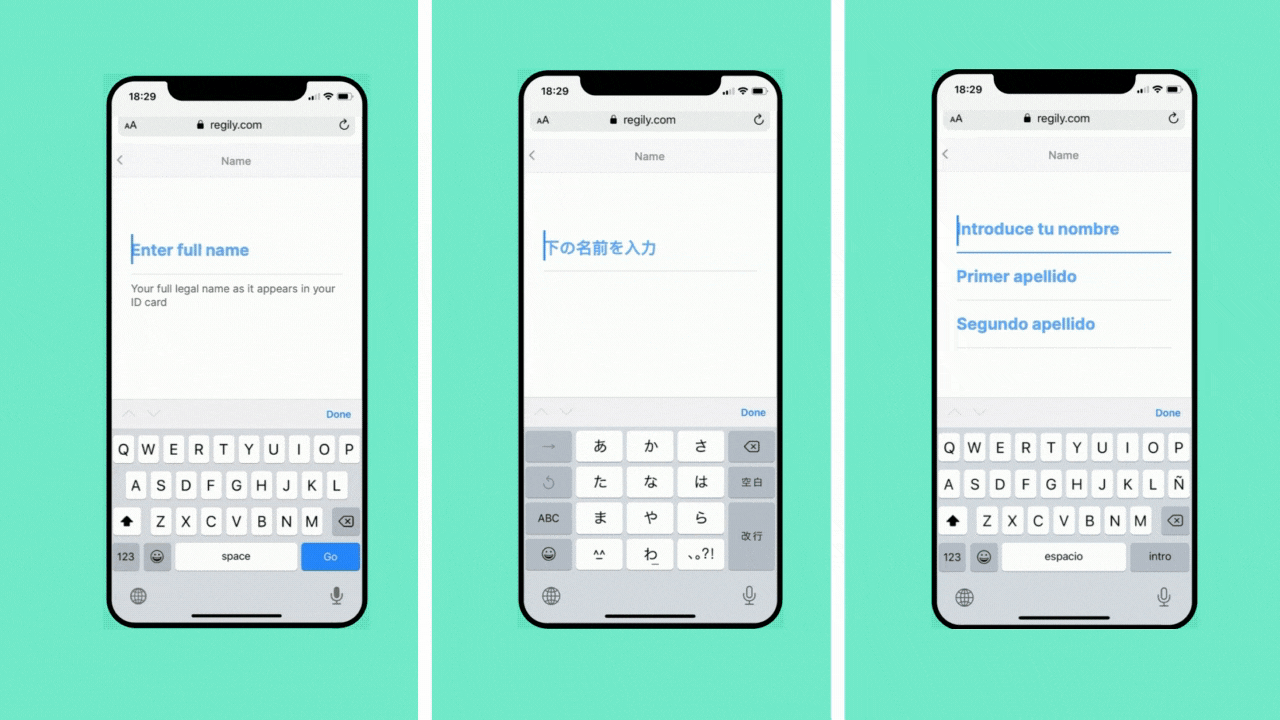
Mobile number
Our framework has a mobile phone number module with global support. Once collected, it always takes all the necessary information such as international formatting and country code. However, the best user experience in many countries is to accept numbers in a local format and then transform the data into an international format in the background.
All mobile numbers go through validation according to country-specific formatting rules. After submitting them and, if failed, users are prompted with a warning and a request to edit the number, which then requires the selection of the international code.
As you might know, there is also an add-on for verification of mobile numbers via a one-time-code SMS, supported globally.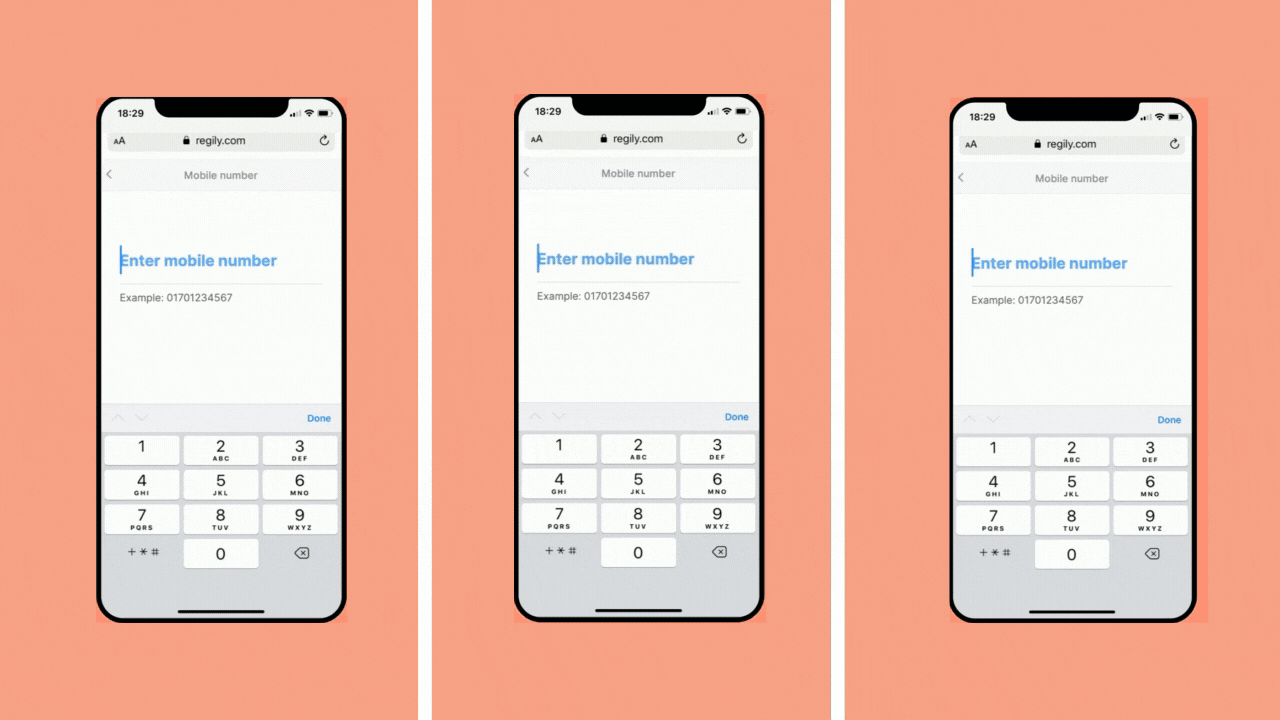
Date of Birth
Date formatting is also very sensitive for different users. The order of the year, month, and day, 4-digit or 2-digit input for the year and all the punctuation rules. Our enrichment has all the necessary formats/order for all the countries in the world and the module changes accordingly.
Validation of the correct input and age restrictions, if needed, are built-in by default. Date data is transformed into the exact format you need in your systems after.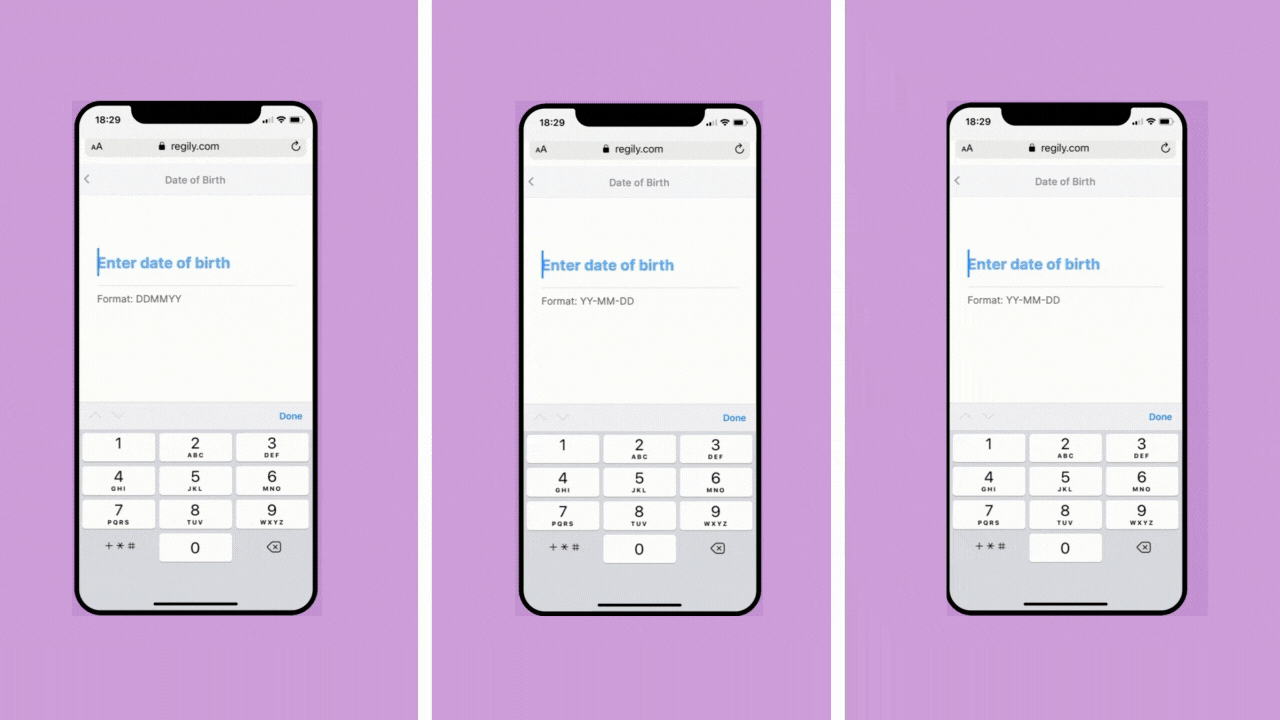
Address
Where in the world is Carmen Sandiego? From a conversion point of view, your users prefer to enter their addresses in the national format that feels the most comfortable to them. Each market tends to differ in formatting which makes our address data module use various UX solutions in the flow depending on multiple factors.
The goal for us is to ensure address data is collected and properly formatted no matter where your users are signing up from. In order to do so, our framework provides different structures in different countries together with the several global and local data suppliers connected to perform the data enrichment.
Check out a few examples of localized flows for countries with a strong postcode system, poor/no postcode system, various address elements, and formats.
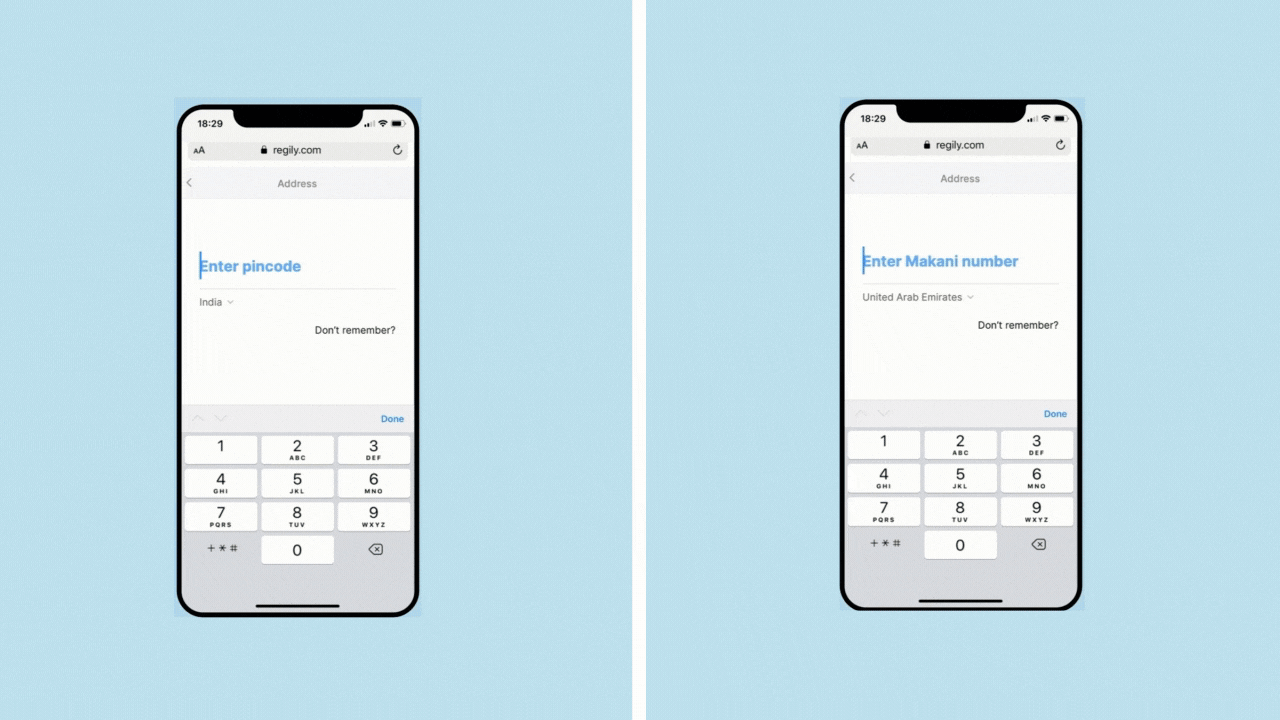
ID number
In some countries, the ID number is considered to be super delicate and private information only meant to be used with the government. In others, the situation is the opposite - everyone remembers it by heart and has no prejudice to share.
When used in a smart way collecting this type of information could benefit the flow conversion a lot. By using a country’s local data enrichment it allows the system to look up a person’s details and hence keep typing to a minimum. This lookup ability varies a lot from market to market however it is a notable part of what our products can help you with.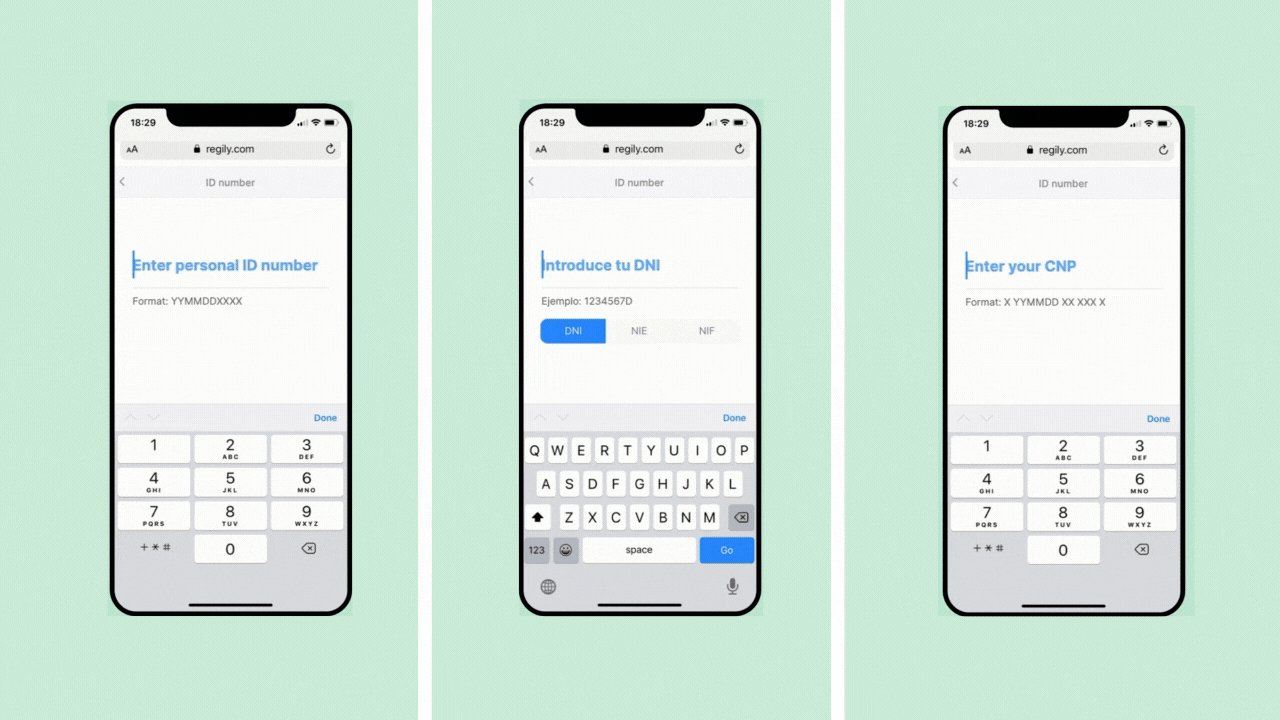
Set logins
Passwords as we know them are rapidly becoming outdated in many countries. For example, there is a surge in social media authentication and one-time-passwords.
Not surprising at all when you read reports on the most hacked passwords such as: “123456”, “123456789”, “qwerty”, “password”, “111111”. Other commonly used passwords revealed in breaches include the names “ashley” and “michael”, the musicians “blink182” and “50cent” and the fictional characters “superman”, “naruto”, and “tigger”.
While conducting dozens of user reviews with native speakers and local testers every month we are discovering what the alternatives are to passwords and most preferred solutions in different countries.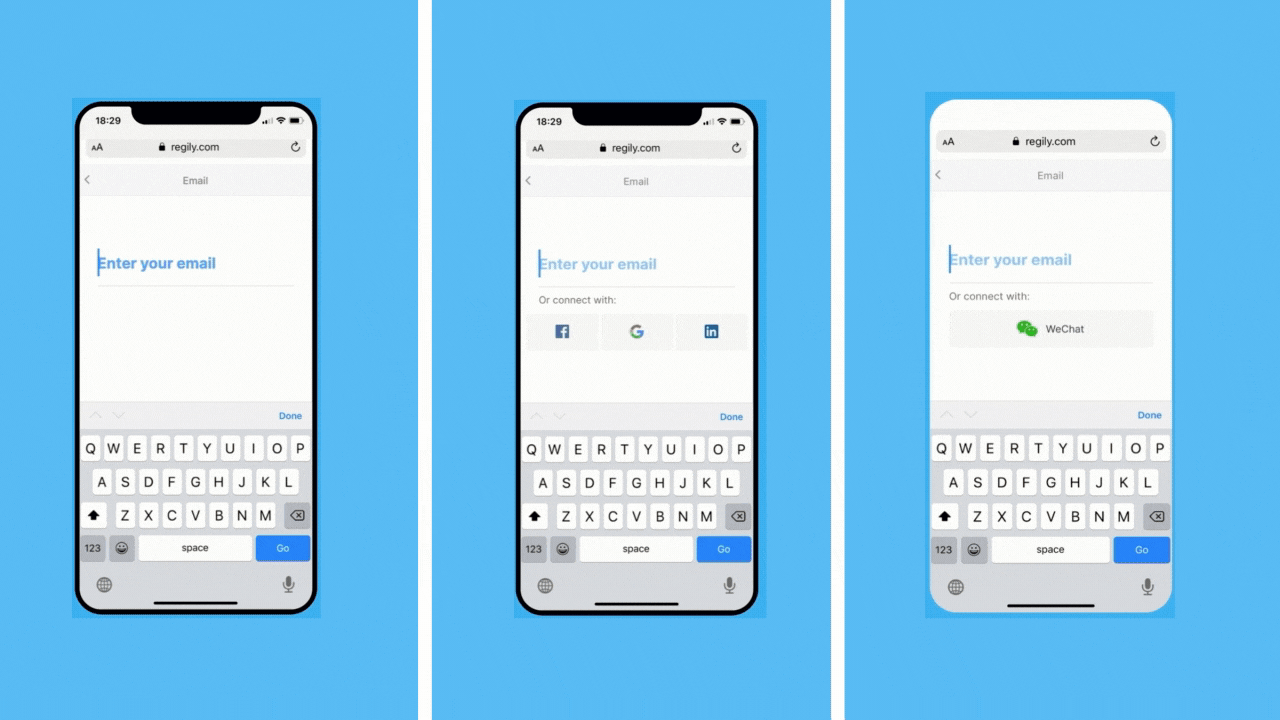
I hope you liked the product update. Feel free to drop a line if you have any feedback or questions. Stay tuned!
/Alexey and the Checkin.com team